Year 6
The English curriculum is built around the three interrelated strands of language, literature and literacy. Teaching and learning programs should balance and integrate all three strands. Together, the strands focus on developing students' knowledge, understanding and skills in listening, reading, viewing, speaking, writing and creating. Learning in English builds on concepts, skills and processes developed in earlier years, and teachers will revisit and strengthen these as needed.
In Years 5 and 6, students communicate with peers and teachers from other classes and schools, community members, and individuals and groups, in a range of face-to-face and online/virtual environments.
Students engage with a variety of texts for enjoyment. They listen to, read, view, interpret and evaluate spoken, written and multimodal texts in which the primary purpose is aesthetic, as well as texts designed to inform and persuade. These include various types of media texts including newspapers, film and digital texts, junior and early adolescent novels, poetry, non-fiction and dramatic performances. Students develop their understanding of how texts, including media texts, are influenced by context, purpose and audience.
The range of literary texts for Foundation to Year 10 comprises Australian literature, including the oral narrative traditions of Aboriginal and Torres Strait Islander Peoples, as well as the contemporary literature of these two cultural groups, and classic and contemporary world literature, including texts from and about Asia.
Literary texts that support and extend students in Years 5 and 6 as independent readers describe complex sequences, a range of non-stereotypical characters and elaborated events including flashbacks and shifts in time. These texts explore themes of interpersonal relationships and ethical dilemmas within real-world and fantasy settings. Informative texts supply technical and content information about a wide range of topics of interest as well as topics being studied in other areas of the curriculum. Text structures include chapters, headings and subheadings, tables of contents, indexes and glossaries. Language features include complex sentences, unfamiliar technical vocabulary, figurative language, and information presented in various types of graphics.
Students create a range of imaginative, informative and persuasive types of texts such as narratives, procedures, performances, reports, reviews, explanations and discussions.
(source: www.australiancurriculum.edu.au)
Achievement Standard
Receptive modes (listening, reading and viewing)
By the end of Year 6, students understand how the use of text structures can achieve particular effects. They analyse and explain how language features, images and vocabulary are used by different authors to represent ideas, characters and events.
Students compare and analyse information in different and complex texts, explaining literal and implied meaning. They select and use evidence from a text to explain their response to it. They listen to discussions, clarifying content and challenging others' ideas.
Productive modes (speaking, writing and creating)
Students understand how language features and language patterns can be used for emphasis. They show how specific details can be used to support a point of view. They explain how their choices of language features and images are used.
Students create detailed texts elaborating on key ideas for a range of purposes and audiences. They make presentations and contribute actively to class and group discussions, using a variety of strategies for effect. They demonstrate an understanding of grammar, and make considered vocabulary choices to enhance cohesion and structure in their writing. They use accurate spelling and punctuation for clarity and make and explain editorial choices based on criteria.
(source: www.australiancurriculum.edu.au)
- Free Plan
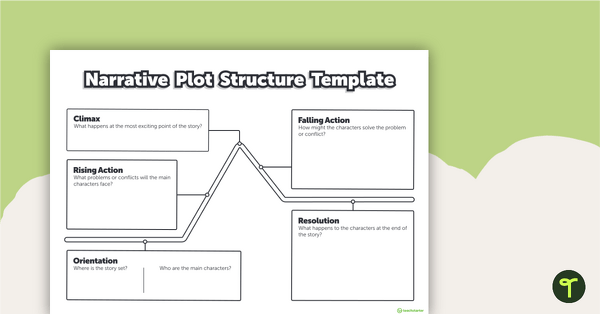
Narrative Plot Structure – Story Mountain Template
Use a story mountain template to help your students write narrative texts.
- Free Plan
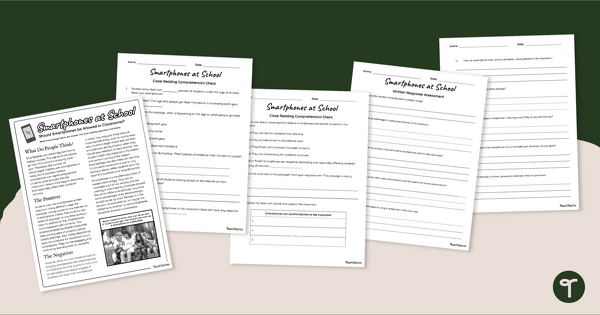
Comprehension - Should Smart Phones Be Allowed in Classrooms?
Decide if cellphones should be allowed in class and boost comprehension skills with a reading passage and comprehension test.
- Plus Plan
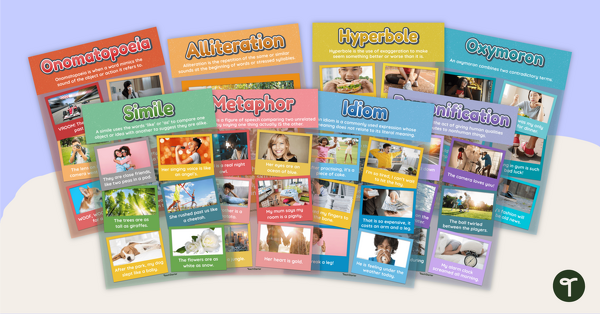
Figurative Language Poster Pack
Remind your students about the most common types of figurative language with this set of classroom display posters.
- Plus Plan
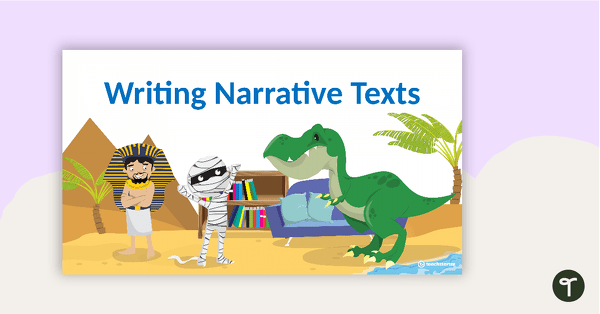
Writing Narrative Texts PowerPoint - Year 5 and Year 6
A 20 slide editable PowerPoint template to use when teaching your students about the structure and language features of narrative texts.
- Plus Plan
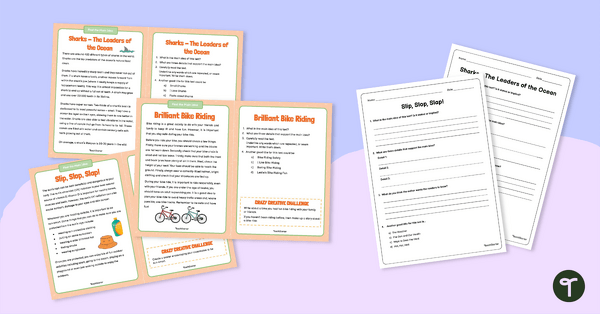
Comprehension Task Cards - Finding The Main Idea
A set of comprehension task cards to help students find the main idea when reading.
- Plus Plan
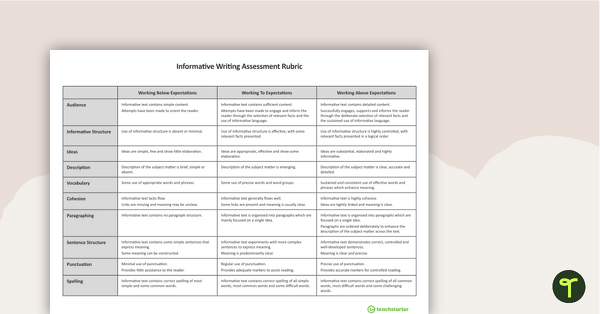
NAPLAN-Style Assessment Rubric - Informative Writing
A NAPLAN-style rubric designed to help teachers to assess students' informative writing.
- Plus Plan
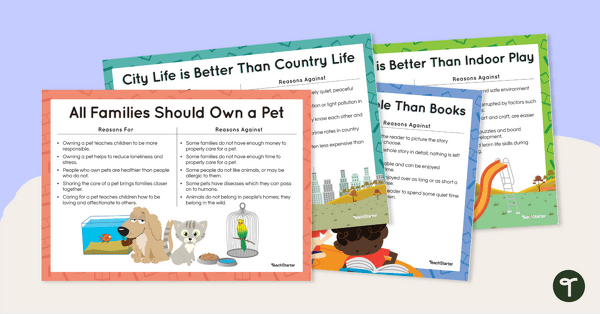
Persuasive Text Writing Prompts - Complete Set
A set of 5 persuasive writing prompts, covering a variety of topics.
- Plus Plan
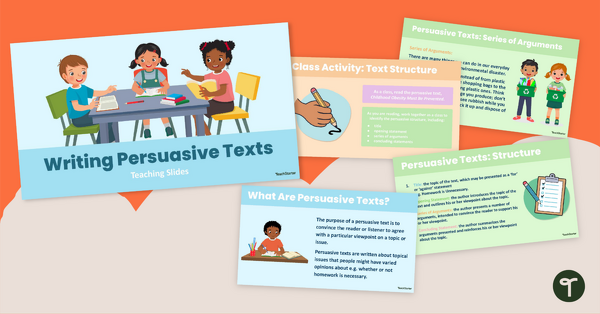
Writing Persuasive Texts PowerPoint - Year 5 and Year 6
Explore the structure and language features of persuasive texts with these teaching slides.
- Plus Plan
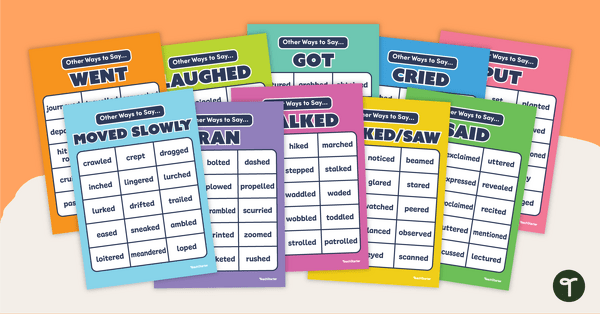
Vivid Verbs Poster Pack
Teach your students to omit boring, overused verbs from their writing with a classroom set of vivid verb posters.
- Free Plan
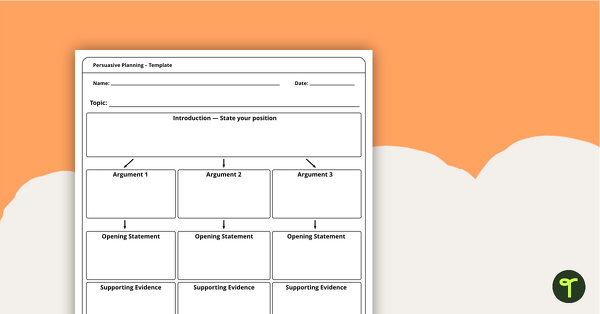
Persuasive Planning Template
A planning template to assist students in writing a well-structured persuasive text.
- Plus Plan
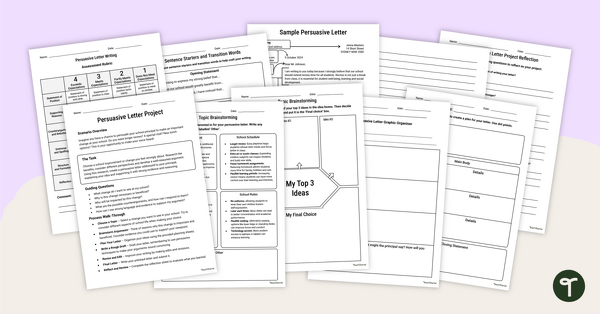
Write a Persuasive Letter Project
Help your students write a persuasive letter to their school principal with this engaging project that builds essential writing skills while making learning meaningful.
- Plus Plan
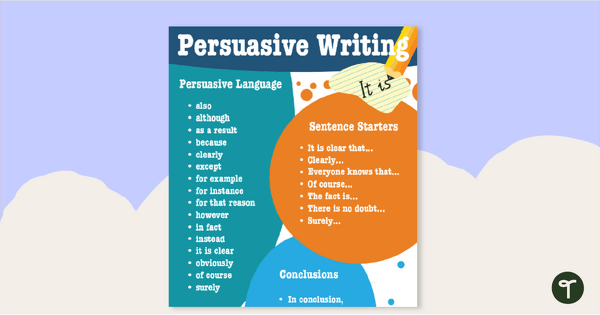
Language in Persuasive Writing Anchor Chart
Introduce students to the language associated with persuasive writing with a printable persuasive writing anchor chart.
- Plus Plan
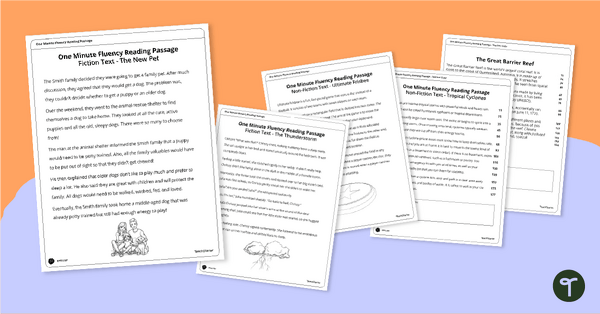
Year 6 Reading Fluency Passages
Assess student fluency with a printable pack of reading fluency passages for Year 6.
- Plus Plan
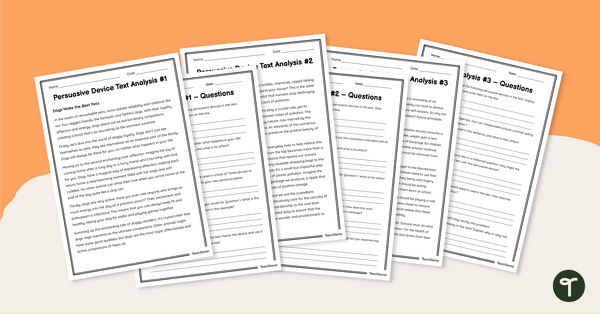
Analysing Persuasive Devices Worksheets
Get students analysing persuasive techniques and their effects on audiences with this set of three texts with accompanying questions.
- Free Plan
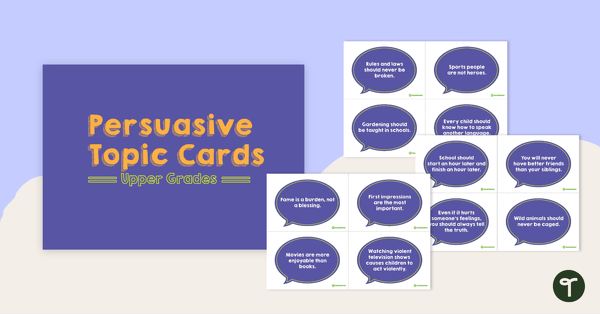
Persuasive Topic Cards - Upper Grades
A set of persuasive topic cards for upper primary.
- Free Plan
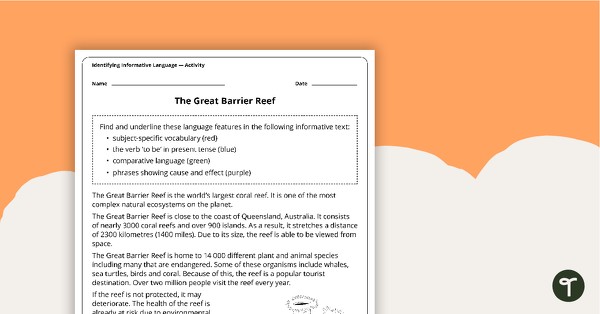
Identifying Informative Language Worksheets
Explore the types of language found in informative writing using this set of three information reports on a variety of age-appropriate topics.
- Plus Plan
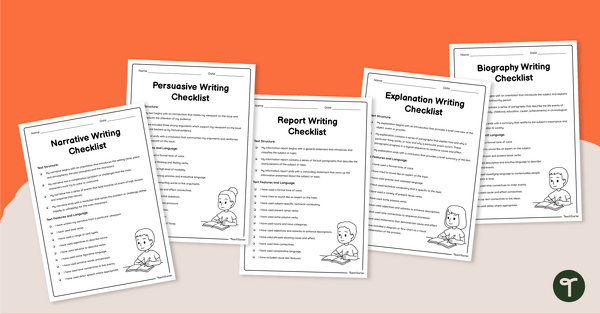
Editing and Revising Checklist Pack
Download this editing and revising checklist pack to support your students when revising and editing their written work.
- Plus Plan
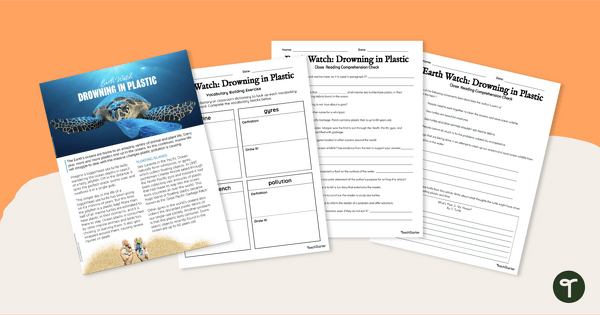
Drowning in Plastic – Reading Comprehension Worksheet
Teach your students facts about ocean pollution with this comprehensive article with accompanying comprehension activities.
- Plus Plan
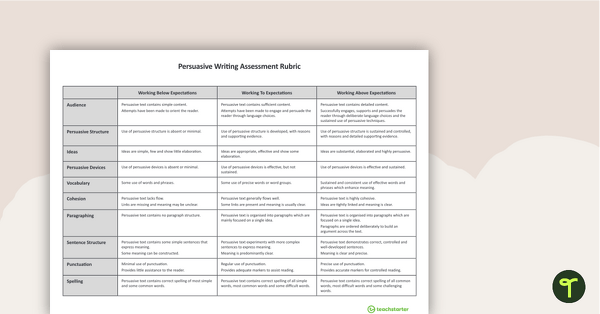
NAPLAN-Style Assessment Rubric - Persuasive Writing
A NAPLAN-style rubric designed to help teachers to assess students' persuasive writing.
- Plus Plan
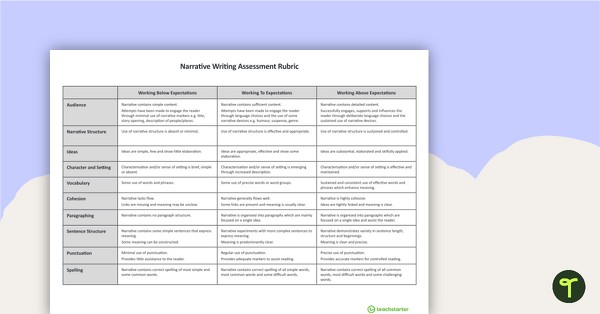
NAPLAN-Style Assessment Rubric - Narrative Writing
A NAPLAN-style rubric designed to help teachers to assess students' narrative writing.
- Free Plan
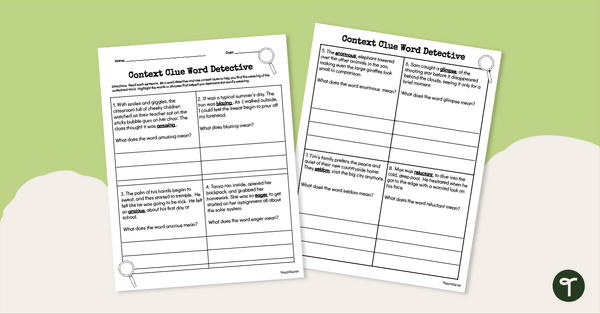
Word Detective Worksheet - Context Clues
Assign our Word Detective Worksheet to give your students extra practice in using context clues to find the meaning of unfamiliar words.
- Plus Plan
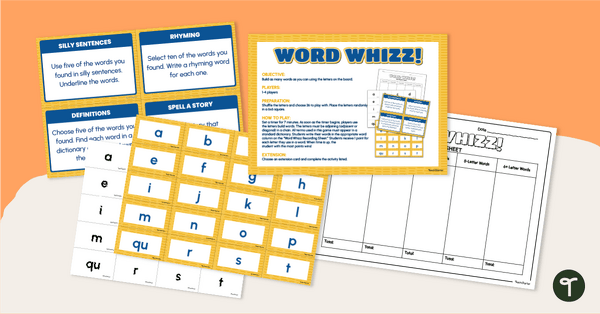
Word Whizz - Spelling Game for Kids
Play ‘Word Whizz’, a fast-paced spelling game for kids that encourages quick thinking and correct spelling.
- Plus Plan
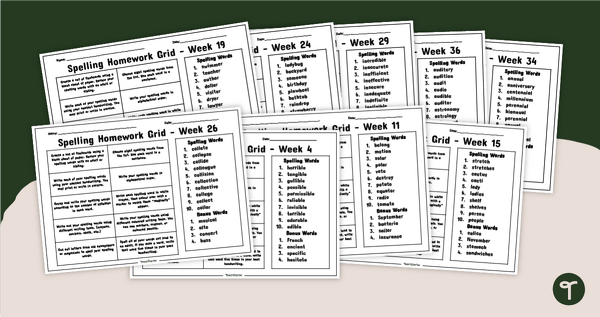
Year 5 Spelling Words Worksheets - Weekly Spelling Homework
Provide your students with engaging spelling homework activities with our no-prep Year 5 Spelling Words Worksheet pack.
- Free Plan
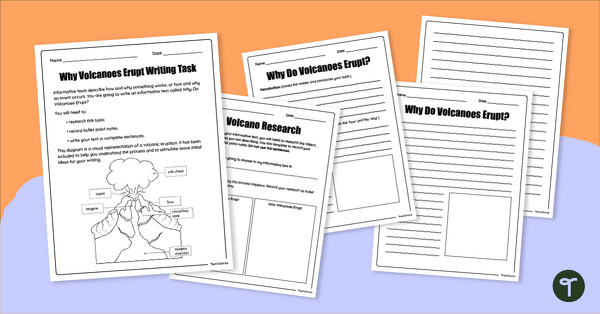
Informative Text Writing Task – Why Do Volcanoes Erupt?
Research and write about how volcanoes erupt with a scaffolded informational writing task.
- Plus Plan
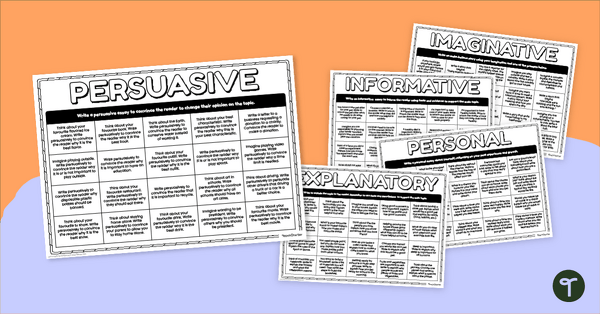
Genre of the Month - Writing Prompt Grids (Upper)
Introduce your students to a variety of writing genres with our printable genre-specific writing prompt grids.
- Free Plan
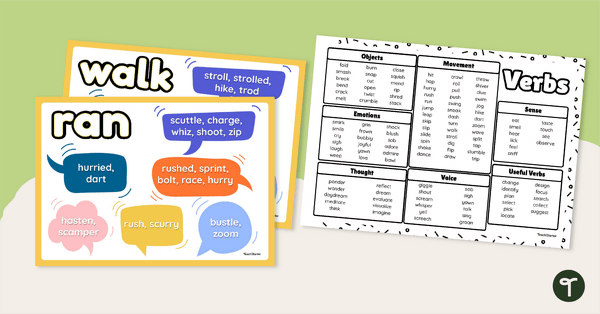
Better Verb Choice Words Pack
Help your students during their writing with this set of visually appealing verb posters and verb word mat.
- Plus Plan
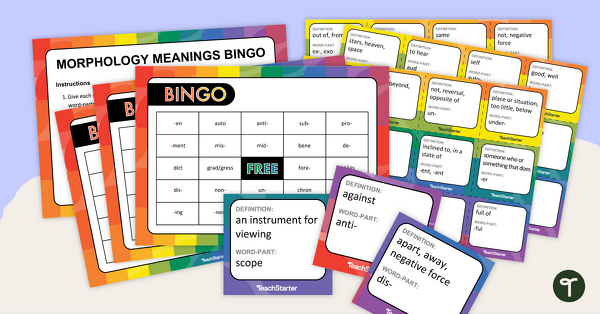
Morphology Game – Bingo!
Examine word parts and identify their morphological meanings in this engaging bingo game.
- Plus Plan
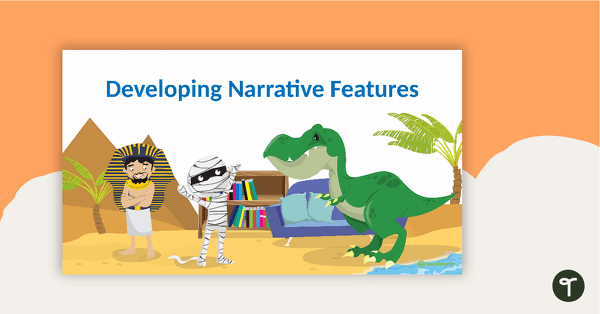
Developing Narrative Features PowerPoint - Year 5 and Year 6
A 26 slide editable PowerPoint template to use when teaching your students about the features of narrative texts.
- Plus Plan
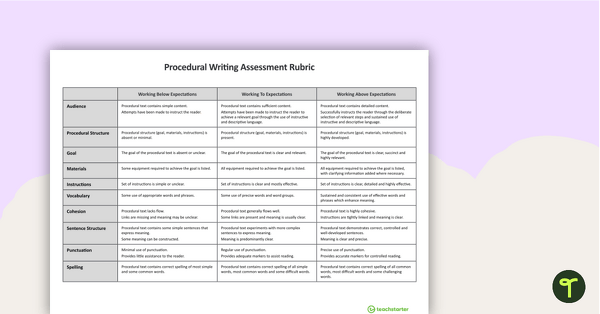
NAPLAN-Style Assessment Rubric - Procedural Writing
A NAPLAN-style rubric designed to help teachers to assess students' procedural writing.
- Plus Plan
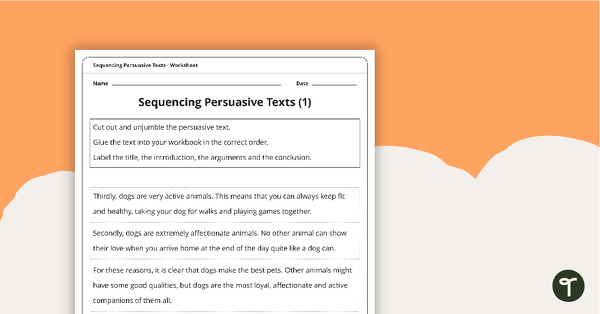
Persuasive Texts Sequencing Activity
3 jumbled persuasive texts for students to sequence in the correct order.
- Plus Plan
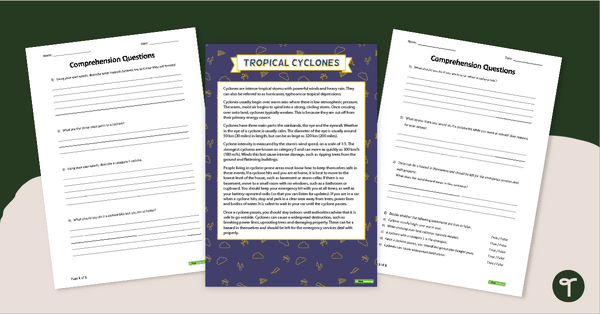
Tropical Cyclone Worksheet - Year 5/6 Comprehension
Use our Tropical Cyclone worksheet pack to teach your students about natural disasters.
- Plus Plan
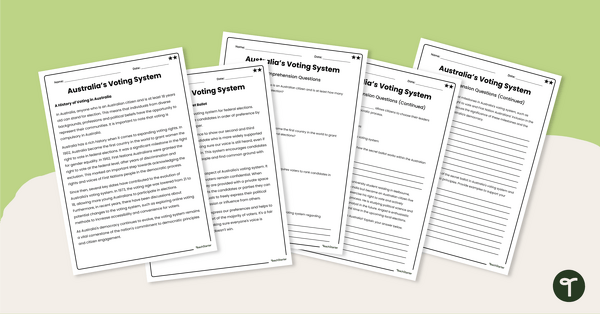
Australia's Voting System – Comprehension Worksheets
Explore the history and systems of voting in Australia with this differentiated reading comprehension activity.